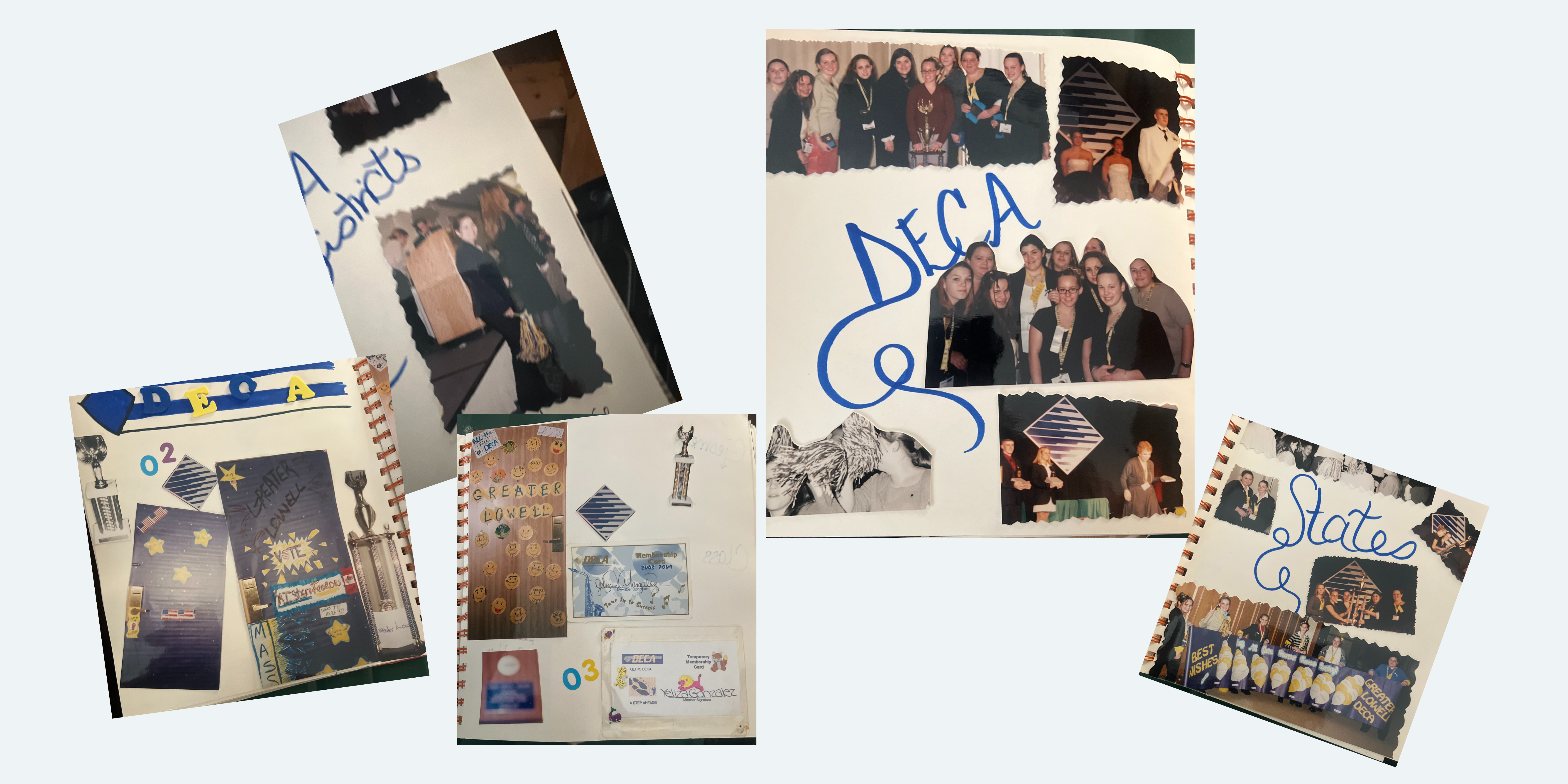Why Multicultural Marketing Education Matters
Growing up in Massachusetts as a Puerto Rican kid wasn’t exactly what you’d call a walk in the park. Don’t get me wrong — I loved the hustle of Massachusetts, especially loved it when I got to work at ad agencies in Boston. Massachusetts is the kind of place where Dunkin’ is your lifeblood and saying “wicked” before any adjective is practically a cultural mandate; and no, not everyone has that ‘Boston accent’, believe it or not, that’s more common in New England states like New Hampshire, Rhode Island, and Maine. But navigating life as a Latina in the predominantly white suburban world of Greater Lowell came with its share of eyebrow-raising moments.
In highschool, at Greater Lowell Tech, where I found my place in Marketing Education after taking a crash course in hating six other shops (i.e. Cosmo, Early Childhood Education and even Fashion… yea, I know, let’s not discuss that again). Marketing was my calling, my home away from home, the place where I finally thought, Yeah, this could be it. But even with all the camaraderie, DECA competitions, and marketing strategies that made me dream big, there was something missing… something I didn’t even realize could have been there: a course on multicultural marketing.
Greater Lowell and the Missing Piece
Picture it: late 90s/early 2000s me, a feisty Latina in a sea of marketing buzzwords like “CPC,” “ROI,” and other acronyms that sounded more like alphabet soup (eww) than career pathways. There was a lot we covered, but understanding how to create campaigns that spoke to people like me, people from different backgrounds? Not even a footnote. In DECA, I learned how to pitch products, dazzle judges, and work on campaigns that simulated the real world; or so I thought. But what was missing was an emphasis on diversity. I wasn’t taught how to factor in my Puerto Rican roots or how marketing could make someone feel seen or included. And that’s a lesson I wish I’d had early on.
DECA, But Make It Diverse
DECA competitions were some of my most transformative experiences. I remember the adrenaline rush before stepping in front of judges, polished notes in hand, heart doing its best impersonation of a salsa beat.
But think about this: What if there had been a multicultural marketing category? What if I had been asked to strategize for audiences that looked more like the people at my family’s holiday (or funeral… sadly, that’s when most of us get to see each other) gatherings? What if I could have created a campaign that resonated with the abuelas cooking arroz con gandules or the tíos who laughed too loud and talked too fast whilst playing dominos and drinking Coronas? That kind of course or DECA track would have opened doors I didn’t even know were there. And not just for me, but for others as well, including non-hispanic kids.
Why Doe-Anderson’s Initiative Matters
That’s why when I read about Doe-Anderson’s new multicultural marketing course at the University of Louisville, it struck a nerve…in the best way possible. Here’s a program designed to prepare students for the world we’re living in today, one that’s packed with cultures blending, intersecting, and redefining what it means to “connect.” It’s the kind of class I would’ve thrived in, armed with my personal stories and the ability to see through more than just one lens. It’s a class that could have shown me that marketing is more than selling a product; it’s about resonating with people on a deeper, more authentic level.
The Ripple Effect: What If?
Imagine if courses like this had existed when I was mapping out my DECA campaigns. I could have pitched a campaign that didn’t just look good but felt right for a wider audience- people from my neighborhood, with our specific humor, our bomba y plena spirit, and our spanglish slang. The confidence that would’ve brought! Not just in knowing my culture could be part of a professional strategy, but in showing my peers that diversity wasn’t just a side note; it was the headline.
This kind of education has the power to prepare students not just for the industry, but for life. To walk into a boardroom (or a DECA competition) and know that their voice, their story, matters in the big marketing picture.
Orlando… Proof That It Works
Today, living in Orlando, a place where cultures mix and mingle like flavors in a good sofrito (which BTW, I make the best there is), I see firsthand why multicultural marketing isn’t just a trend, it’s a necessity. Here, campaigns that don’t speak to our diverse communities fall flat. And in my work, I strive to remember what I didn’t learn in high school or at DECA: representation and connection are everything.
Full Circle
So, shout out to Doe-Anderson for recognizing the gap and doing something about it. To the students who take this course: know that you’re learning something powerful. You’re learning to craft stories and campaigns that matter to more than just the mainstream, stories that might make a kid like I was, sitting in a Massachusetts classroom, unsure if her culture fits, feel seen.
Would a course like this have changed the trajectory of my life? Maybe. But I know one thing for sure: it’s going to change the game for many future marketers who won’t have to wonder “what if.” And for that, I’m all in.
